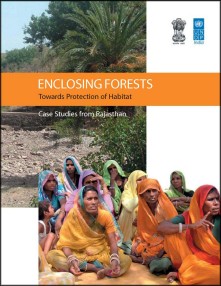Focal point
Location
NRMC is a technical and managerial advisory firm in the development sector that provides evidence-based solutions for sustainable, equitable and inclusive development.
Established in 2004, NRMC is engaged in creating impactful solutions that make a difference to the society. We achieve results at scale by catalyzing partnership with clients and communities. We believe in ethical business, nurturing talent to be courageous to push the limits of knowledge and discovering new ways of doing things.
NRMC experience, high quality skills, breadth of sectors, services make us preferred partners for public and private sector clients and partners in creating sustainable and scalable social impact.
We have a demonstrated in-depth understanding of sectors across project design and solution implementation. NRMC service offering incorporates all aspects of project and program management, development sector advisory, monitoring & evaluation and documentation. Focused on rural and urban poverty, Team NRMC is a professional service provider. Our experience on planning, advisory, technical and management support encompasses the social, institutional and gender dimensions of development. We work with a range of clients which include Government, bi-lateral and multi-lateral agencies, international NGOs, corporates and corporate foundations.
We constantly strive to understand community needs and aspirations, ensuring that we deliver contextual and impactful solutions on behalf of our clients and partners. With offices across six locations, we are able to provide effective and efficient solutions to clients and communities.
Members:
Resources
Displaying 161 - 165 of 208Land, People and Politics: Contest Over Tribal Land in Northeast India
Land is the centre of most conflicts in Northeast India because of its importance in the life of the people of the region, particularly its tribal communities. It is also the resource most under attack, in the tribal areas in particular.
This book contains studies papers conducted by a group of researchers on land alienation in different states of the Northeast in 2005-2006.
The book attempt to understand the processes that result in tribal land alienation and the consequent conflicts in the region.
Study of Uniform Coding Scheme For Computerisation of Land Records
This is a techincal paper by Department of Land Resources, GoI. At present land records databases which are being maintained in various states are following state specific set of codes for different attributes like crop, soil, land use, irrigation, season, area unit and location. The Land Records Information Systems Division of National Informatics Centre, New Delhi has initiated an exercise to standardize the coding scheme for different entities in the land records database exclusively for Data warehousing and Mining purposes for central/state datacentres.
Enclosing Forests Towards Protection of Habitat
This study analyses the approach of 'enclosing forests' implemented under the Project in Rajasthan which aimed at protecting and regenerating forests and securing long-term access of and benefits to local communities. Forest enclosures established in 13 villages of Udaipur and Baran districts and covering 1289 hectares of forest land represent a collaboration between local communities, the Forest
Development Challenges in Extremist Affected Areas
The brief review in the repor concludes of various disturbing aspects of the socio-economic context that prevails in large parts of India today, and that may (and can) contribute to politics such as that of the Naxalite movement or erupt as other forms of violence. It should be recognized that there are different kinds of movements, and that calling and treating them generally as unrest, a disruption of law and order, is little more than a rationale for suppressing them by force.
Special Economic Zone: Performance, Lessons Learned, and Implication for Zone Development
This paper examines 30 years of experience in zones, reviewing development patterns and economic impacts of zones worldwide. The experience shows that while zones have been effective in addressing economic growth and development objectives, they have not been uniformly successful; successes in East Asia and Latin America have been difficult to replicate, particularly in Africa, and many zones have failed.

